VAYIKRA (And He Called)5784
Torah: Leviticus 1:1-5:265784
Shabbat Zachor Maftir: Deuteronomy 25:17-19
Haftarah: I Samuel 15:2-15:345784
Brit Chadashah: Hebrews 9:1–28
“The Lord called to Moses and spoke to him from the tent of meeting.” (Leviticus 1:1)
Last week, Parasha Pekudei was the final Torah portion in the book of Exodus.
This Shabbat, we begin studying the Book of Leviticus. In Hebrew, Leviticus is called Vayikra after its opening word וַיִּקְרָא, which means and He called.
But this Shabbat is also special because it is Shabbat Zachor (Sabbath of Remembrance), the Shabbat preceding Purim and the second of four special Shabbatot that prepare us for Passover.
Special portions of Scripture are included to remember the attack of Amalek on the Israelites when they came out of Egypt.
While it may seem odd to remember an attack that happened so long ago, God commanded the Jewish People to wipe them out and never forget them.
“When you were weary and worn out, they met you on your journey and attacked all who were lagging behind; they had no fear of God … you shall blot out the name of Amalek from under heaven. Do not forget!” (Deuteronomy 25:18–19)
In the Shabbat Zachor portion of the reading (1 Samuel 15:2–15:34), God commands King Saul to completely destroy the Amalekites:
“This is what the Lord Almighty says: ‘I will punish the Amalekites for what they did to Israel when they waylaid them as they came up from Egypt. Now go, attack the Amalekites and totally destroy all that belongs to them. Do not spare them; put to death men and women, children and infants, cattle and sheep, camels and donkeys.’” (1 Samuel 15:2–3)
But Saul fails to carry out God’s command and spares the life of Agag, the king of Amalek:
“But Saul and the army spared Agag and the best of the sheep and cattle, the fat calves and lambs—everything that was good. These they were unwilling to destroy completely, but everything that was despised and weak they totally destroyed.” (1 Samuel 15:9)
For this disobedience, God regrets choosing Saul as king and decides to give the kingdom to another:
“Then the word of the Lord came to Samuel: “I regret that I have made Saul king, because he has turned away from me and has not carried out My instructions.” (1 Samuel 15:10–11)
Why is this special Scripture portion read just before Purim?
It is because the anti-Semite in the book of Esther, Haman, who tried to annihilate all the Jews of Persia, is believed to have descended from the Amalekites.
Esther 3:1 describes Haman as being an Agagite—a descendant of Agag the Amalekite king.
The story of Saul’s disobedience demonstrates how very important it is that we obey God’s tzav (command)—the title of this week’s Parasha.
Failure to do so can have destructive consequences even in future generations.
A Jewish man prays at the Western (Wailing) Wall from the Jewish prayer book, which is called a siddur. His head is covered with his prayer shawl (tallit).
Sadly, to this day Israel has enemies like the Amalekites and Haman who try to wipe the Jewish state off of the map.
One day they will all perish and even the memory of their name will be blotted out from under heaven.
“All who devour you will be devoured; all your enemies will go into exile. Those who plunder you will be plundered; all who make spoil of you I will despoil. But I will restore you to health and heal your wounds.” (Jeremiah 30:16–17)
Israel will live in peace and security with the Messiah ruling and reigning from Jerusalem, the Holy City.
“‘The days are coming,’ declares the Lord, ‘when this city will be rebuilt for Me…. The city will never again be uprooted or demolished.’” (Jeremiah 31:38, 40)
The Relevance of Offerings
“Speak to the sons of Israel and say to them, ‘When any man of you brings an offering to the LORD, you shall bring your offering of animals from the herd or the flock. If his offering is a burnt offering from the herd, he shall offer it, a male without defect; he shall offer it at the doorway of the tent of meeting, that he may be accepted before the LORD.” (Leviticus 1:2–3)
The Torah portion, Vayikra, presents the laws of korbanot (קָרְבָּנוֹת offerings), including the korban olah (קָרְבַּן עוֹלָה) or burnt offerings.
The Hebrew noun olah means goes up because the priest would burn the offerings on the wood of the altar, the aroma would go up to be accepted by the Lord.
The Hebrew word korbanot comes from the root word k-r-v (קרב), which means to be close (karov). The sacrifices, once accepted by God, restore closeness and intimacy between Him and His people.
It is our iniquities and sins that separate us from God and prevent us from establishing or maintaining a close relationship with Him.
“But your iniquities have separated you from your God; your sins have hidden His face from you, so that He will not hear.” (Isaiah 59:2)
Although some New Covenant Believers consider the laws in Leviticus irrelevant and obsolete, they remain relevant and are indeed extremely important.
For instance, without them we cannot grasp the concept of blood sacrifice to atone for sin. That core concept in God’s plan for redemption helps us rightly understand the sacrificial death of Yeshua (Jesus) the Messiah.
Attempting to understand Yeshua’s death on the Roman execution stake without comprehending the blood sacrifices is like trying to build a house without a foundation. The home may last for a time but will not withstand the fierce storms without that solid base.
Likewise, we must have a solid foundation in the Word of God to rightly understand the Word of God, as well as successfully navigate through the storms of life.
For some people, a guilty conscience over past sins causes them to be alienated from God, despite having received forgiveness. The blood sacrifice of Yeshua, however, was shed to restore us to right relationship with God and to completely cleanse us of any trace of a guilty conscience:
“How much more will the blood of Messiah who through the eternal Spirit offered Himself without blemish to God, cleanse your conscience from dead works to serve the living God?” (Hebrews 9:14)
Despite this, some followers of Yeshua still struggle with guilt and condemnation, even though the Word of God promises that those who are in the Messiah are free:
“There is therefore no condemnation to those in Yeshua the Messiah who do not walk in the flesh.” (Romans 8:1)
This doesn’t mean that we do not have to make restitution to those we wronged. Yeshua clearly taught that we are to seek out those we have wronged and get right with them before coming to the altar with any offering. (Matthew 5:23–26; Leviticus 5:16).
Once restitution has been made, then we can apply the blood of Yeshua to the doorposts of our hearts (just as the Israelites applied the blood of the lamb to the doorposts of their homes in Egypt) to be set free from the wages of sin, which is death.
“Let us draw near with a true heart in full assurance of faith, having our hearts sprinkled from an evil conscience and our bodies washed with pure water.” (Hebrews 10:22)
The pure waters refer to the mikvah, the ritual water immersion, which is symbolic of our new spiritual birth.
Only when our hearts have been cleaned (sprinkled with the blood of Yeshua) and our bodies immersed in the mikvah can we have this assurance of our faith that allows us to draw near to God.
A guilty conscience over our past will separate us from intimacy with God, as well as with other Believers in the Body of Messiah.
Once we have drawn near to God (Hebrews 10:22), we are to “consider how we may spur one another on toward love and good deeds.” Instead of isolating ourselves, we are exhorted to meet with others where we can be encouraged and encourage others. (Hebrews 10:24–25)
Since each of us has been given the ministry of reconciliation, we should be agents of healing and restoration through Messiah Yeshua.
The Blood of Sprinkling
“He shall slay the young bull before the LORD; and Aaron’s sons the priests shall offer up the blood and sprinkle the blood around on the altar that is at the doorway of the tent of meeting.” (Leviticus 1:5)
The Cohen (High Priest) not only sprinkled the blood around the altar, he dipped his finger in it and sprinkled it seven times before the Lord, in front of the veil. (Leviticus 4:17)
Some suggest that, likewise, the blood of Yeshua, who was the High Priest (Cohen HaGadol) of the New Covenant, was also sprinkled before the Lord seven times:
- Yeshua perspired drops of blood in the Garden of Gethsemane when He prayed to the Father: “And being in anguish, He prayed more earnestly, and His sweat was like drops of blood falling to the ground.” (Luke 22:44)
- He was struck in the face until it was “marred beyond recognition.” (Isaiah 52:14)
- His back was scourged with a whip. (Isaiah 50:6; Matthew 27:26)
- The soldiers put a crown of thorns on His head. (John 19:2)
- They plucked out His beard. (Isaiah 50:6)
- They pierced His hands and feet. (Psalm 22:16; Luke 24:39; John 20:27)
- They pierced His side with a spear and blood and water came out. (Psalm 22:14; John 19:34)
Satanic Counterfeit
Animal rights activists are likely appalled to read of all the sacrifices that the Torah requires. Some people, even Christians, are uncomfortable with the whole idea of blood sacrifices. One of the reasons is our natural human aversion to blood. Another reason is because of the association with evil satanic rituals.
Satanism observes its own system of blood sacrifices to the powers of darkness.
As well, Satan often attempts to twist and pervert the Word of God, using it for his own evil purposes. Luke 4 gives us an example of how he did this with Yeshua when He was tested in the wilderness.
Satan misleads by substituting wicked counterfeits for the holy things of God, such as blood sacrifices.
People of various pagan religions have practiced the ritual killing of animals to appease their false gods. Many cultures used animal sacrifice in purification ceremonies. Some of these include (in addition to the Hebrews): Greeks, Romans, Ancient Egyptians, Aztecs, and Yoruba.
Is animal sacrifice still practiced today? Not currently in Judaism, as the korbanot cannot be offered without the Temple. And there has not been a Temple for nearly 2,000 years.
However, outside of Judaism, it is practiced. Followers of Santeria (a religion of Caribbean origin) to this day offer up some sacrificial animals to cure the sick or give thanks to their god (Orisa) as part of their ritual activities.
There are also some Christians in certain Greek villages who, in a practice called kourbània, sacrifice animals to Orthodox saints.
Human Sacrifice
Another Satanic counterfeit to God’s sacrificial system is found in some cultures and religions in which human beings were sacrificed as a way of giving their very best to their god.
In times of natural disasters, such as earthquakes, floods, or volcanic eruptions, which have historically been understood as evidence of their deity’s anger or displeasure, other cultures have offered up human sacrifice in the hopes of appeasing the wrath of their gods.
Even in the West, worshipers of Satan and his demonic entities have been performing human blood sacrifice since ancient times, so it is likely that this practice continues to this very day, especially within secret communities just outside of mainstream culture.
Judaism, on the other hand, abhors the concept of human sacrifice because it is abhorrent to God, as it is written: “Never give your children as sacrifices to the god Molech. If you do, you are dishonoring the name of your God. I am YHVH.” (Leviticus 18:21)
It is for this reason that most Jewish people find it so difficult to believe in Yeshua — human sacrifice has always been associated with paganism and is strictly forbidden.
Men gather to worship God at the Western (Wailing) Wall. On close inspection, at least 20 Torah scrolls are either being carried or are placed on tables in the above photo.
The One True God completely forbade His people from pagan worship customs and especially the practice of human sacrifice:
“You must not worship the LORD your God in their way, because in worshiping their gods, they do all kinds of detestable things the LORD hates. They even burn their sons and daughters in the fire as sacrifices to their gods.” (Deut. 12:31)
Knowing that God detests human sacrifice, especially of a son or daughter at the hand of a parent, the Jewish people naturally assume that our God would never allow someone to die a substitutionary death the way animals do.
This is a significant stumbling block to receiving salvation through Yeshua the Messiah for the Jewish People. However, the ancient prophet Isaiah revealed that long ago God planned to lay all of our sins and iniquities upon the Messiah:
“But He was pierced through for our transgressions, He was crushed for our iniquities; The chastening for our well-being fell upon Him, and by His scourging we are healed. All of us like sheep have gone astray, each of us has turned to his own way; But the LORD has caused the iniquity of us all to fall on Him.” (Isaiah 53:5–6)
God did not intend for His korbanot to be performed by a people who were determined to live lawless lives. They were never a substitution for living in fellowship with Him and being right-hearted.
Likewise, Yeshua’s sacrifice was meant to restore fellowship with our Father upon a person seeking to draw near to Him, sincerely repenting of their sins, and accepting the sacrifice as a free gift on their behalf.
The blood of the Lamb of God (Yeshua) takes away the sins of those who believe in who He is, what He did, turn from their sin, and follow Him.
God does not delight in the sacrifice but in the right heart of the person who offers it.
All of the Hebrew prophets warned the people that offering sacrifices without returning to the principles of righteousness our God laid out for us in His Word would be in vain.
Ultimately, what God requires of each one of us is to practice justice, mercy and humility toward God and man.
“It has been told to you, O man, what is good, and what the LORD does require of you: only to do justly, and to love mercy, and to walk humbly with thy God.” (Micah 6:8)
And Yeshua, who has set us free from the evil master of sin through His death and resurrection, has given us the power to be just, love mercy, and walk humbly with our God.




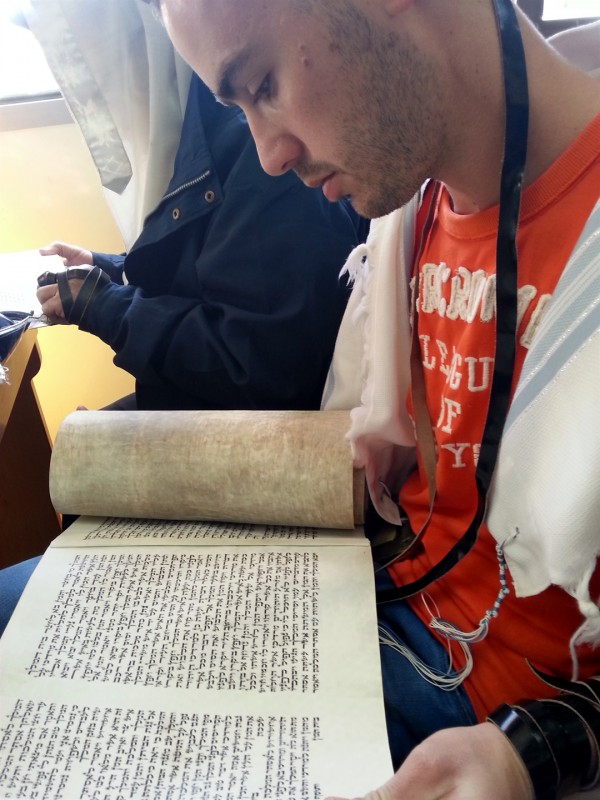
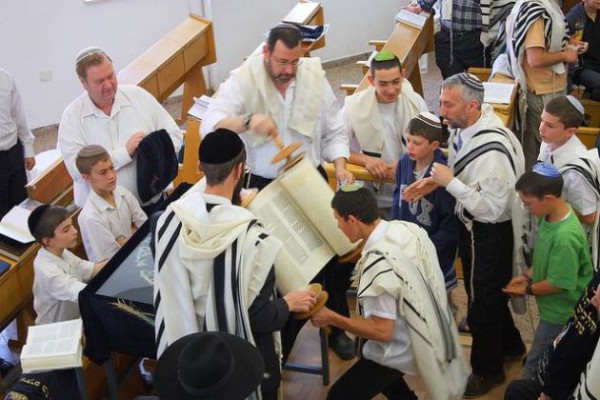
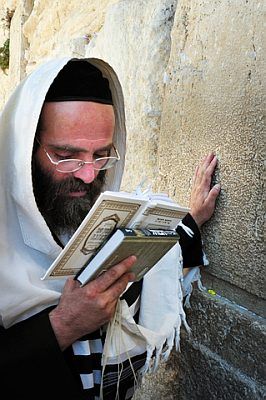
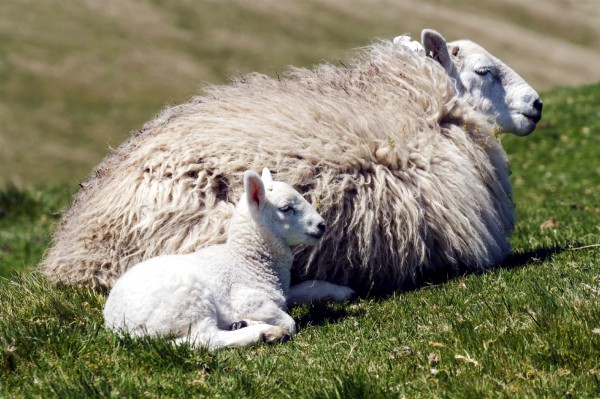
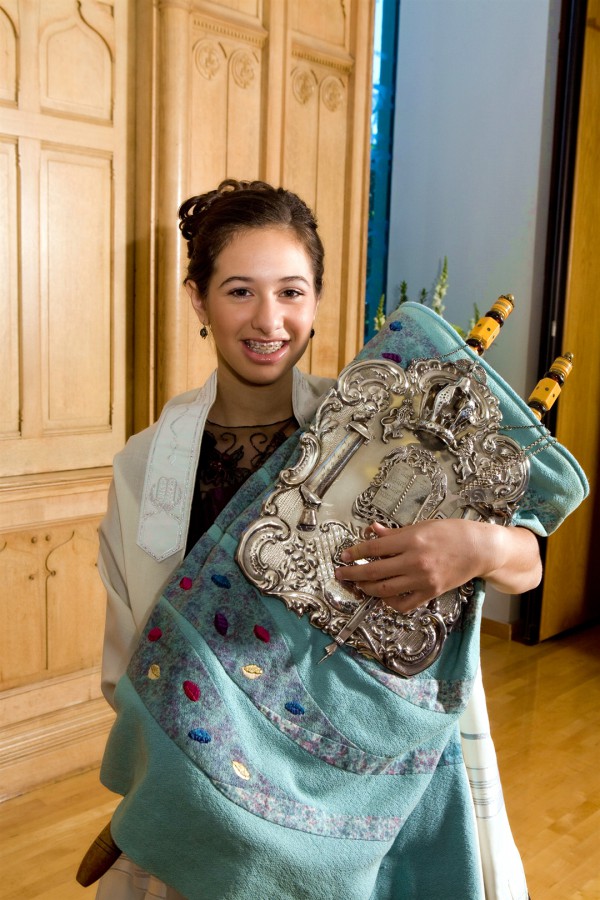
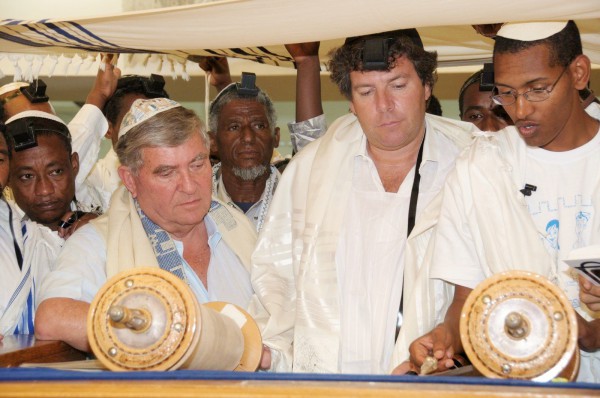
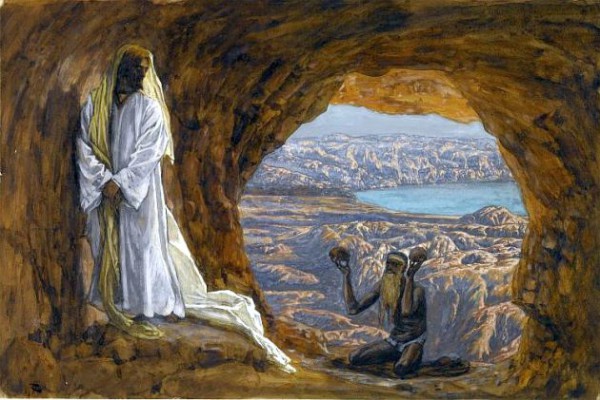
 Share this Photo
Share this Photo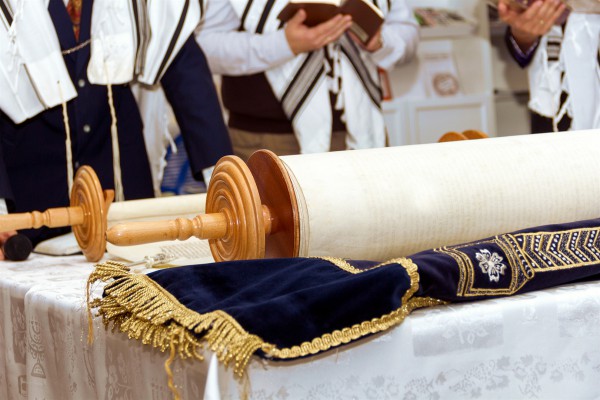
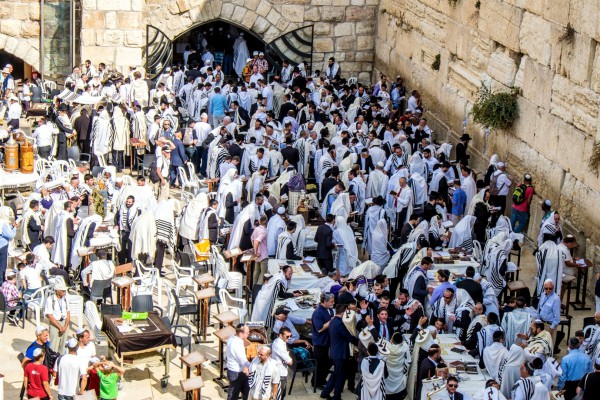
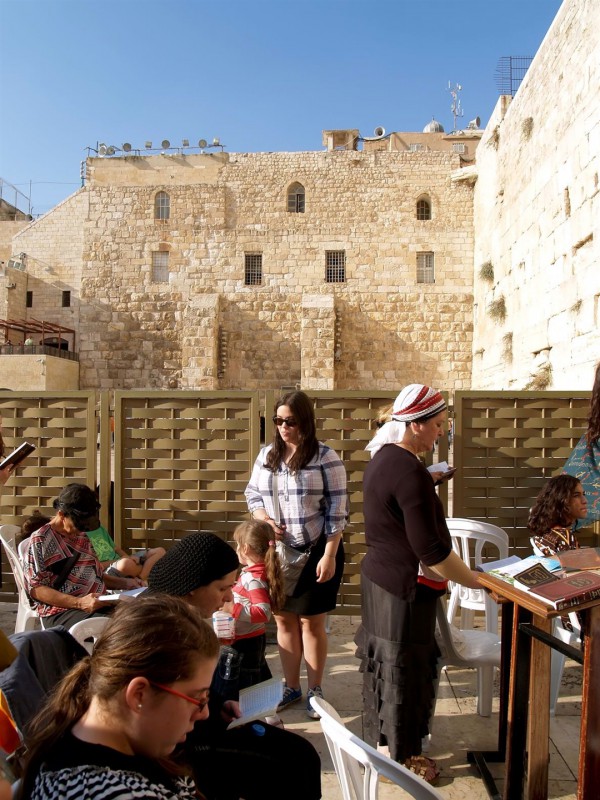

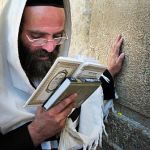







Share Your